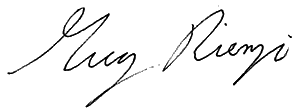
Image caption:
Greg Rienzi
Editor
Contact.
That word has reverberated in my head for months now, both as something to avoid and to yearn for.
Many of us have grown accustomed to a lack of real contact with colleagues, family, and friends, as we all do our part to halt the spread of the coronavirus. The litany of canceled events and gatherings, big and small, has cost us an incalculable number of touch points with humanity, a kaleidoscope of unexpressed high fives, handshakes, hugs, and pats on the shoulder.
I wonder how this dearth of physical contact affects us in ways we can't quite measure, altering our moods and how truly connected we feel. I recall the words of Johns Hopkins neuroscientist David Linden, his latest book featured in this issue, who has described touch as the "critical social glue" that binds us all together and provides a sense of self.
We now also know the need to document COVID-19 exposures to break the chain of transmission. J. Cavanaugh Simpson's feature on digital contact tracing offers a glimpse into the future of public health surveillance, a well-intentioned Big Brother watching us through security cameras and our phones. If this comes to pass, will we ever second-guess that handshake with a stranger? I hope not.
A friend who sensed my growing separation anxiety reminded me to keep in contact with people. That advice prompted weeks' worth of phone calls, texts, and messages to friends, family, and colleagues, some of whom I had regretfully lost touch with. Since I started, a day hasn't gone by that I don't get a note from someone, even a "Hey, how's it going?" It might not replace a hug, but they're nice reminders we're not enduring 2020 alone.

Greg Rienzi
Editor
Give us your feedback by sending a letter to the editor via email to jhmagazine@jhu.edu. (We reserve the right to edit letters for length, style, clarity, and civility.)







